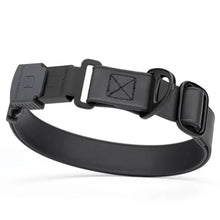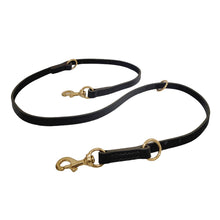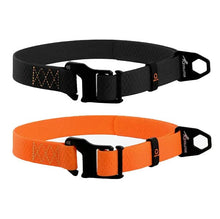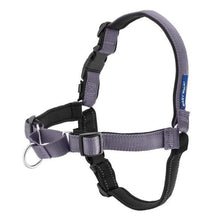How To Prepare For Your New German Shepherd Puppy

Choosing to add a German shepherd to the family is a big decision. In exchange for receiving a lifetime of love and loyalty from their dog, owners take on a lot of responsibility when raising one of these magnificent canines.
German shepherd puppies require lots of time and attention. They are very busy dogs and need lots of socialization from a young age. Many new German shepherd owners are caught by surprise by just how much their new dog enjoys puppy biting and exploring everything that captures their attention.
There are some things you can do to prepare for your new puppy, such as:
1. Learn about the breed
If you’ve never owned a German shepherd, learn all you can about the breed. German shepherds are very loyal and active herding dogs. They retain those traits throughout their lifetime. They need lots of exercise, mental stimulation, training, and are happiest when close to their family.
They form very strong bonds with their owners and live to be by their side. They don’t do well and can develop behavior problems when left alone for long hours or isolated from people. They want to be near their family all the time and are often lovingly called, “Velcro dogs.”
They are not an ornamental dog, couch potato, and they don’t do well living outside alone. They are also not a breed that can go without lots of training to direct their abundant energy and desire to learn and please their owners.
2. Potty training accidents happen
German shepherds like all puppies must be trained to go potty outside. Because they are so smart, potty training them is not very difficult but definitely varies by owner, the dog, their schedule, and more. No matter how hard you work at potty training, puppies are babies and physically not able ‘hold it’ like an adult dog. Therefore, be prepared to clean up some messes while potty training. Having a gentle, puppy friendly oatmeal dog shampoo is a must!
3. Prepare for puppy biting
Because they are herding dogs, they tend to puppy bite and mouth more than most breeds. You’ll want to read up and have a training plan in place to teach them not to bite your hands, feet, and everything else with their tiny sharp teeth. They need lots of safe chews and toys when they are puppies.
4. Teach them to share
As a herding breed, they’re naturally protective. They need to be taught boundaries when they are young. From the first day you bring your puppy home, you’ll need to teach them that guarding their resources, such as their food, space, and toys, is not allowed. Hand feeding and teaching them to Drop It are great ways to begin.
5. Puppy proof the house
German shepherd puppies are smart and curious much like human toddlers. They love to explore and chew. To keep them and your belongings safe, you’ll need to puppy proof your home. One thing you can do before bringing them home is to decide which rooms the puppy will be allowed in. After that, remove everything they can get into such as:
• Shoes
• Purses/bags
• Secure electrical cords by hiding or wrapping them
• Small choking hazards
• Baby toys
• Remote controls
• Everything with batteries
• Houseplants
• Cleaning supplies
• Trash cans
• Cords for your blinds
• Books and magazines
• Ornate pillows
• Install childproof locks on low cabinets
• Put up all sugar free candy and food and medications.
6. Give them a safe space
No matter how attentive you are as a puppy owner, there will be a time when you can’t keep your eyes on the puppy. The easiest way to handle this problem is to create a safe space for your puppy to go when they’re unsupervised. This can easily be accomplished by investing in a crate or exercise pen. This also provides a safe place for your puppy to sleep and helps with potty training.
7. Use a leash or tether inside
When taking your puppy for a walk, you’ll obviously need a leash and collar. But another great way to keep your eyes on your puppy, which can also help during potty training, is to keep your pup leashed or tethered to you in the house. Leashing your dog inside will reinforce your bond, keep your puppy safe, and alert you when they start sniffing around to go potty. Tethering your puppy to furniture also allows your puppy to move around a room while you’re supervising but doing something else, like watching television. A lightweight 6’ leash is a good leash choice that will last into adulthood.
8. They need lots of toys
Because they’re such a smart, busy breed, and will also soon be teething, they need lots of toys. Durable, nontoxic plastic and rubber toys and treat puzzles can help keep your busy puppy occupied and out of trouble. An interactive toy such as this Kong Wobbler is a great example of a safe puppy toy.
9. Begin training young
Training begins the day you bring your puppy home. Puppies can easily start their basic commands such as sit, stay, place, off, etc. Even as puppies, they love to please their owners and enjoy learning new things. However, they require consistency and leadership to become confident, well behaved dogs. Training with a clicker is a great way for puppies to learn because it instantly “marks” the desired behavior so they quickly learn that they did something right.
10. Exercise is mandatory
This breed is very active and even as young puppies require some form of exercise or they become destructive. The younger the puppy the less exercise they need but owners should be prepared to spend time exercising their dog, every day, throughout their lifetime. Fortunately, exercise can come in many forms such as playing in the yard and going for walks.
11. Line up your vet and other providers
If you already have a vet and service providers, this is not as important. However, if you don’t, decide where you’ll take your puppy for their puppy checkup or in an emergency before you bring your dog home. If you plan to hire a trainer, groomer, or dog sitter, start the interviewing process before you have your puppy so you’re never rushed or pressured into making a quick decision.
12. Food and dishes
Along with a leash and collar, right away you’ll need food and dishes. If you’re getting your puppy from a breeder, you may choose to continue the food the puppy was already eating. If you’re planning to switch, consider buying a small quantity of the old food to feed while slowly transitioning to the new food. German shepherds do best on high quality, large breed puppy food that is easy to digest. Flying Saucer Puppy Food Dishes help prevent young puppies from walking in their food.
13. Consistent rules and schedule
When training your puppy, they need consistency and an understanding of what the house rules are. Decide early on what they will and will not be allowed to do and incorporate those boundaries into training. For example, if the puppy is not allowed on the couch, they should never be allowed on the couch. If you want them to sit before going outside, they should always sit before going outside. Keeping to a schedule, such as feeding them at the same time each day, also helps with potty training. Consistency helps them grow into confident, well-adjusted dogs while inconsistently can cause anxiety and confusion. In other words, set your puppy up for success.
Please share these tips with all your friends.
You may also like: 6 Simple DO'S And DON'TS When Training Your German Shepherd






















